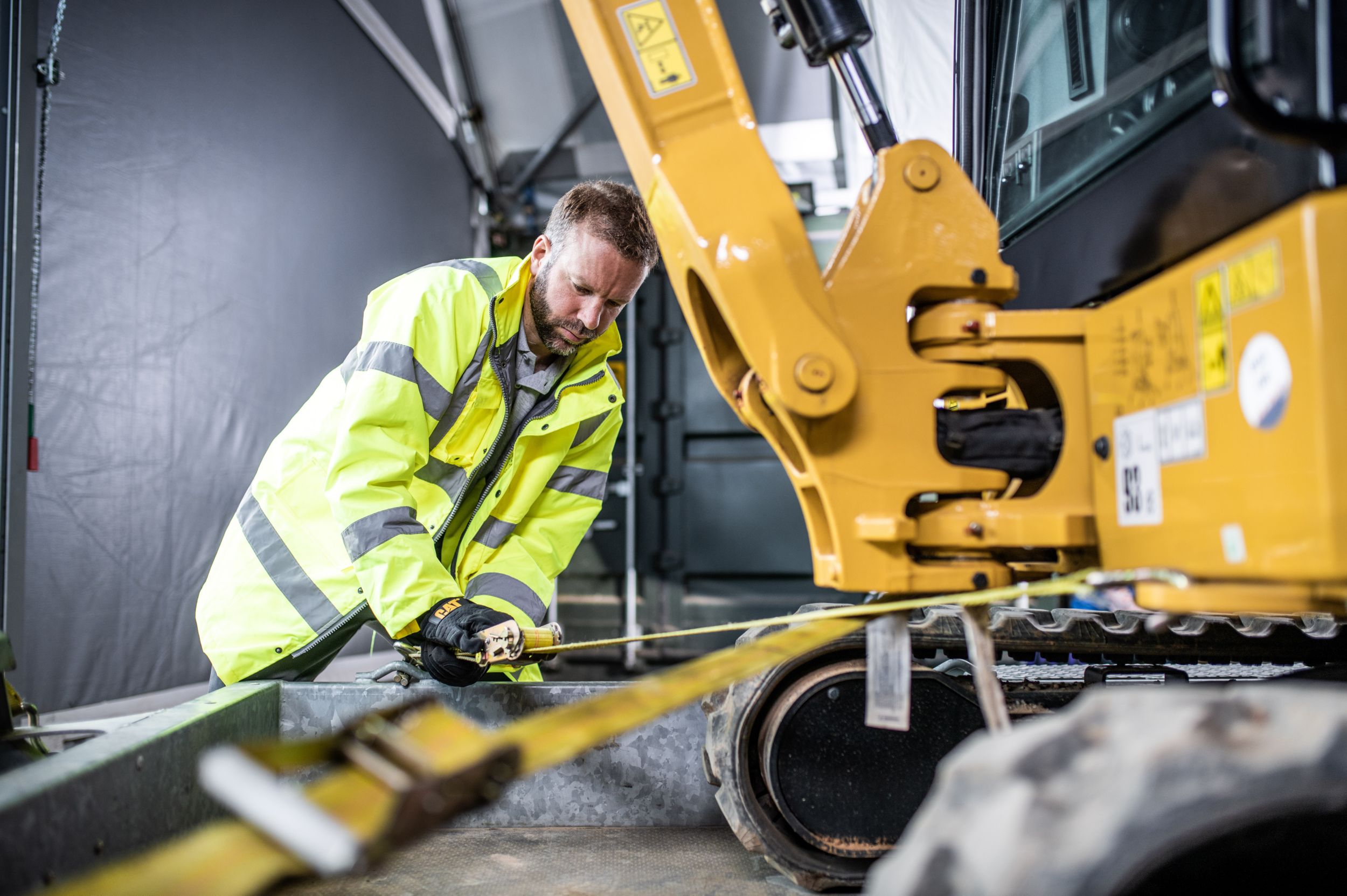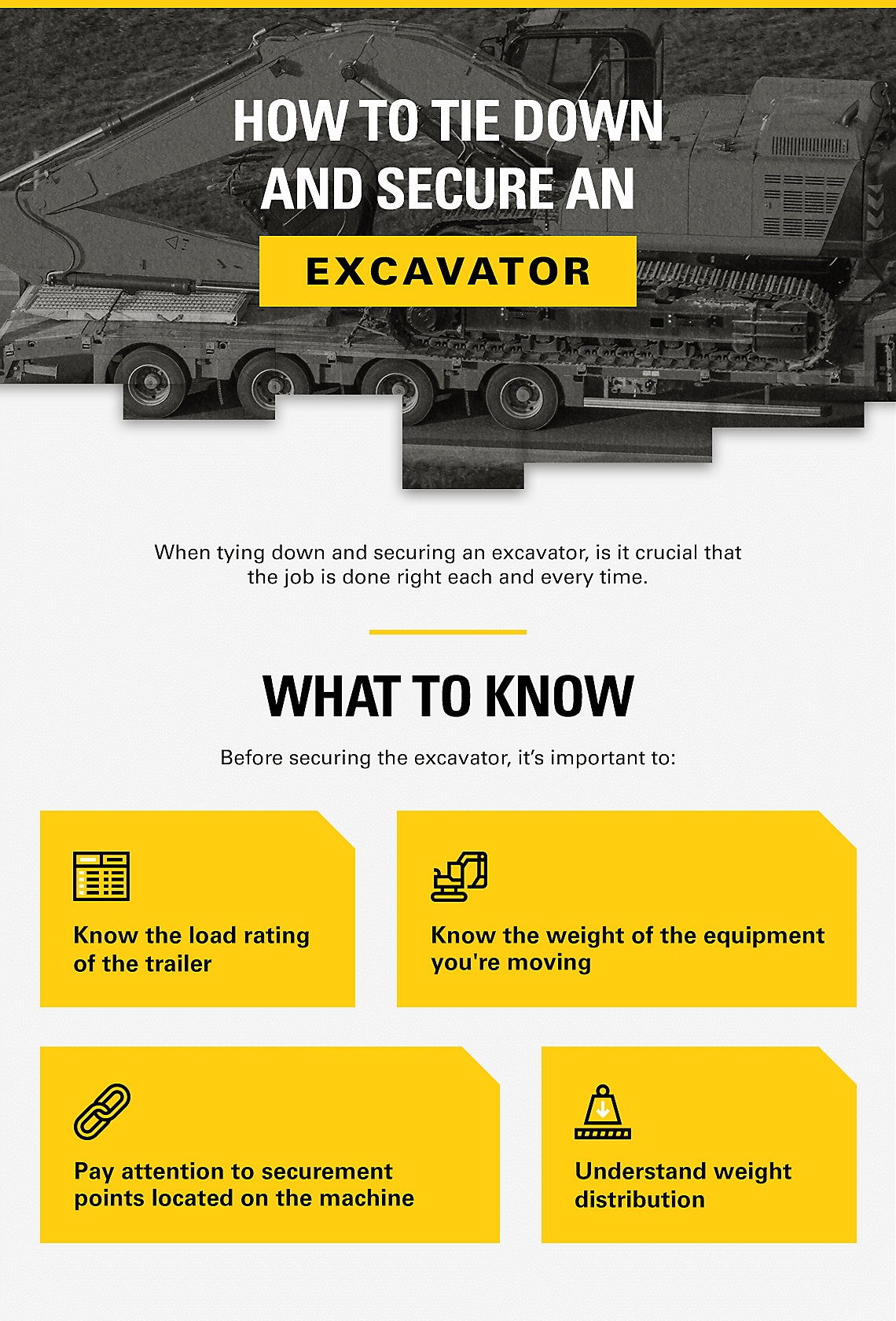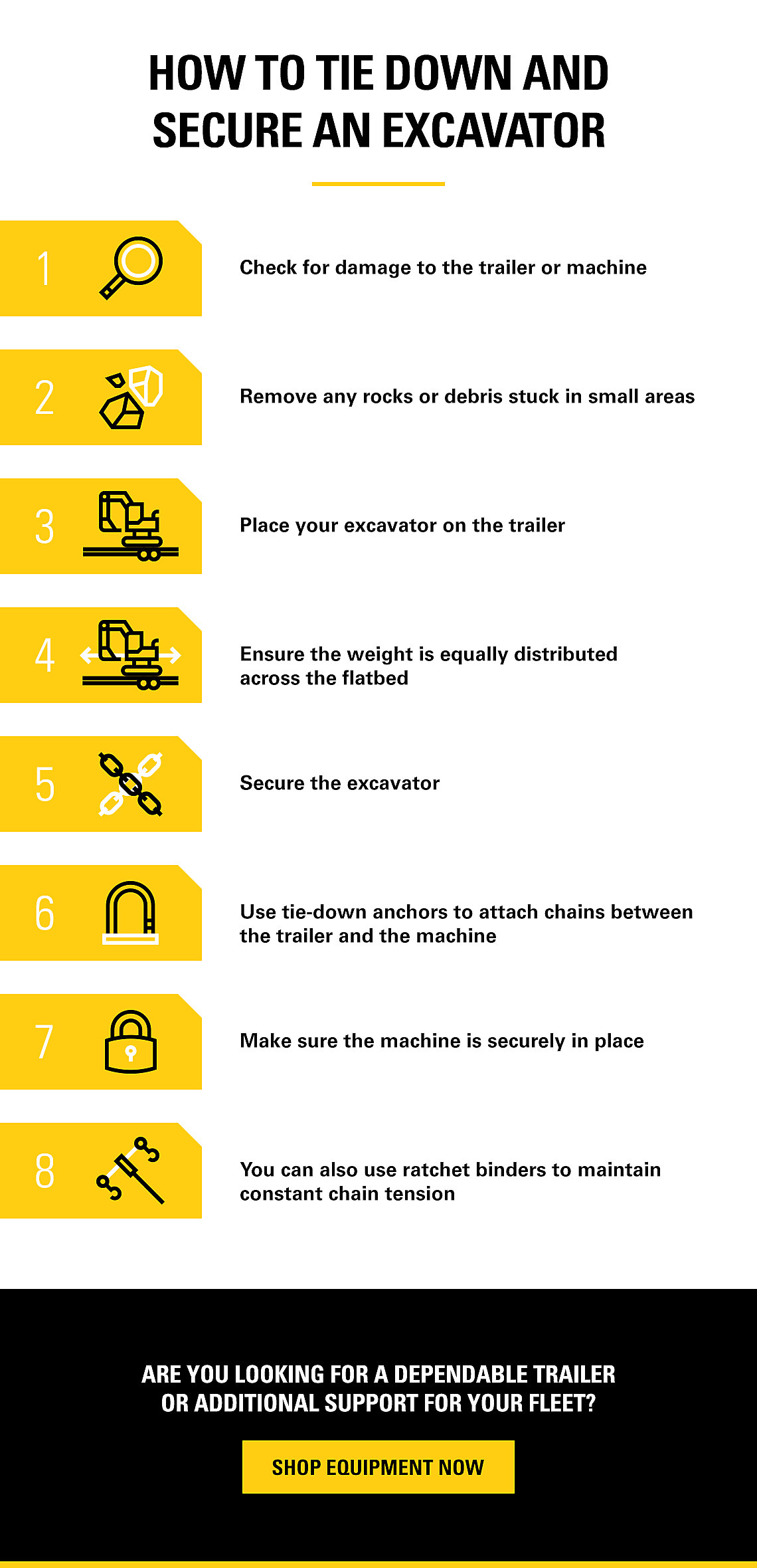

Sign In
Welcome! Sign In to personalize your Cat.com experience
If you already have an existing account with another Cat App, you can use the same account to sign in here
Register Now
One Account. All of Cat.
Your Caterpillar account is the single account you use to log in to select services and applications we offer. Shop for parts and machines online, manage your fleet, go mobile, and more.
Account Information
Site Settings
Security
Author: Small Business Expert | June 24, 2020 | Topic: Used Equipment
How to Tie Down and Secure an Excavator
Excavators are multi-ton machines, and just like any other type of heavy equipment, it’s important to implement safe practices when transporting them. Taking the proper precautions as you prepare to move your equipment will reduce risks and help ensure that the excavator reaches its new destination in one piece.
Whatever your level of experience in the industry, you need to know how to secure an excavator on a trailer so that it meets transport safety regulations. Here’s an overview of the tools and steps that will help you tie down your load properly.
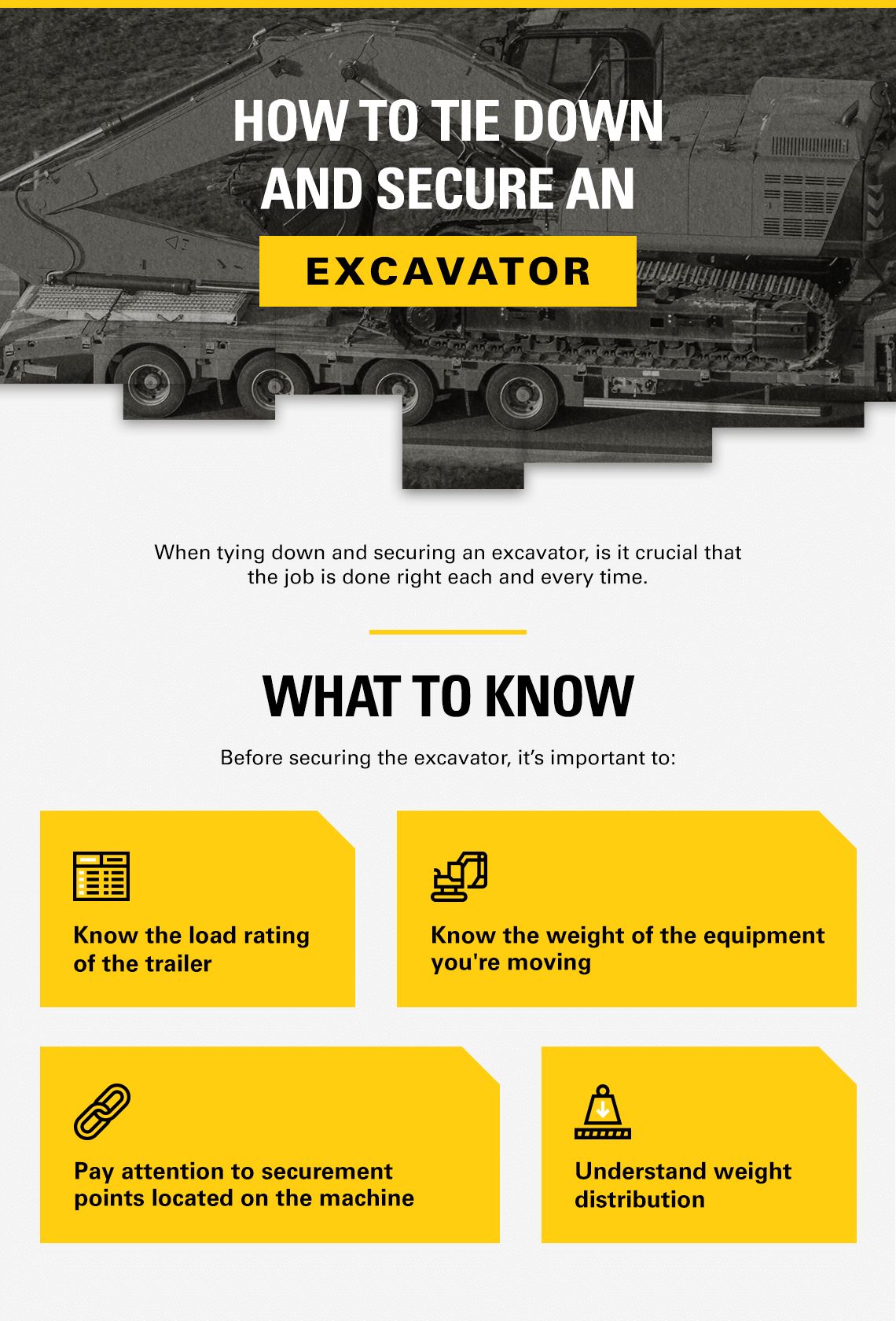
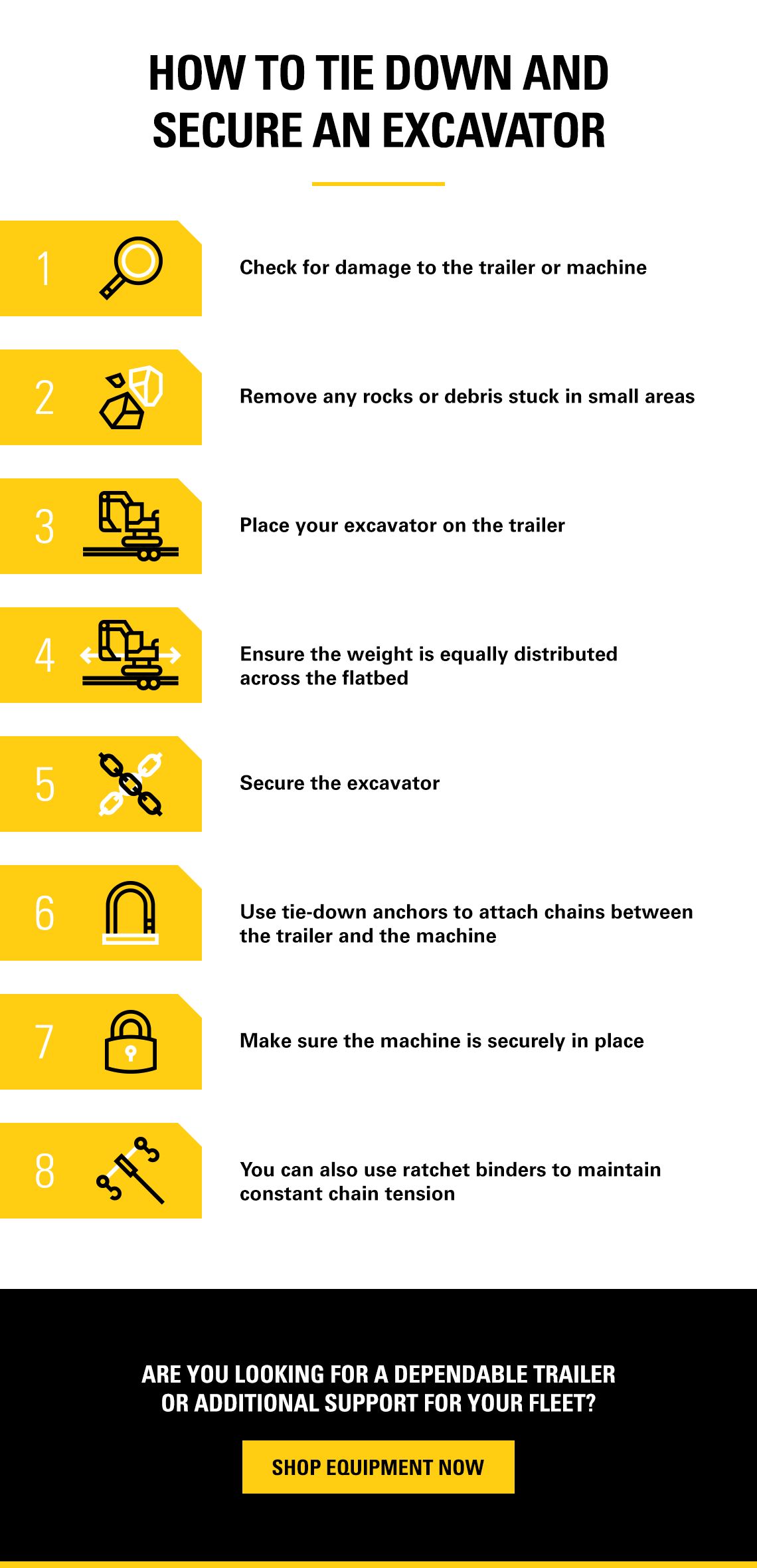
Follow These Steps to Tie Down Your Excavator
The secret to transporting an excavator safely is due diligence. If you’re planning to pull into traffic with a five to 15-ton piece of equipment behind you, there are some specific standards you’ll need to follow. Federal cargo securement rules are strict for heavy equipment that exceeds 10,000 pounds, and following these rules is the key to ensuring compliance and maintaining road safety.
Some of the steps you take to tie down your excavator may depend on the weight of the equipment. For instance, how you secure a mini excavator can differ from the method you use to secure a standard machine.
Regardless of the size or specifications of the excavator that you’re transporting, you’ll need a trailer that’s large enough to carry it, along with durable chains and multiple ratchet binders. Once you have all these tools in place, you can follow a few simple steps to secure your excavator:
1. Check for debris and damage: Any damage to the trailer or machine could present hazards during transportation, meaning you need to know about them before letting someone get behind the wheel. Conducting an inspection to find and remove any rocks or debris stuck in small areas can also help lower risks for other drivers.
2. Position the equipment: First, verify that the trailer's capacity is sufficient to handle the equipment you’re planning to move. Then, place your excavator on the trailer, making sure that the weight is equally distributed across the flatbed.
3. Secure the excavator: With the help of tie-down anchors, you can easily attach chains between the trailer and the machine to hold it securely in place. Most standard excavators require four main body attachments and an extra attachment for the appendage, while mini excavators under 10,000 pounds may only need a minimum of two body attachments. Once you’ve tied down the machine, you can use ratchet binders to maintain constant chain tension.
Learn More From Your Cat® Dealer
As long as you ensure a secure attachment and the proper amount of chain tension, your excavator will be ready for transport. Knowing how to tie down an excavator properly will allow you to operate with peace of mind.
Are you looking for a dependable trailer or additional support for your fleet? Check out our selection of pre-owned construction equipment or contact a dealer near you today for service options.
